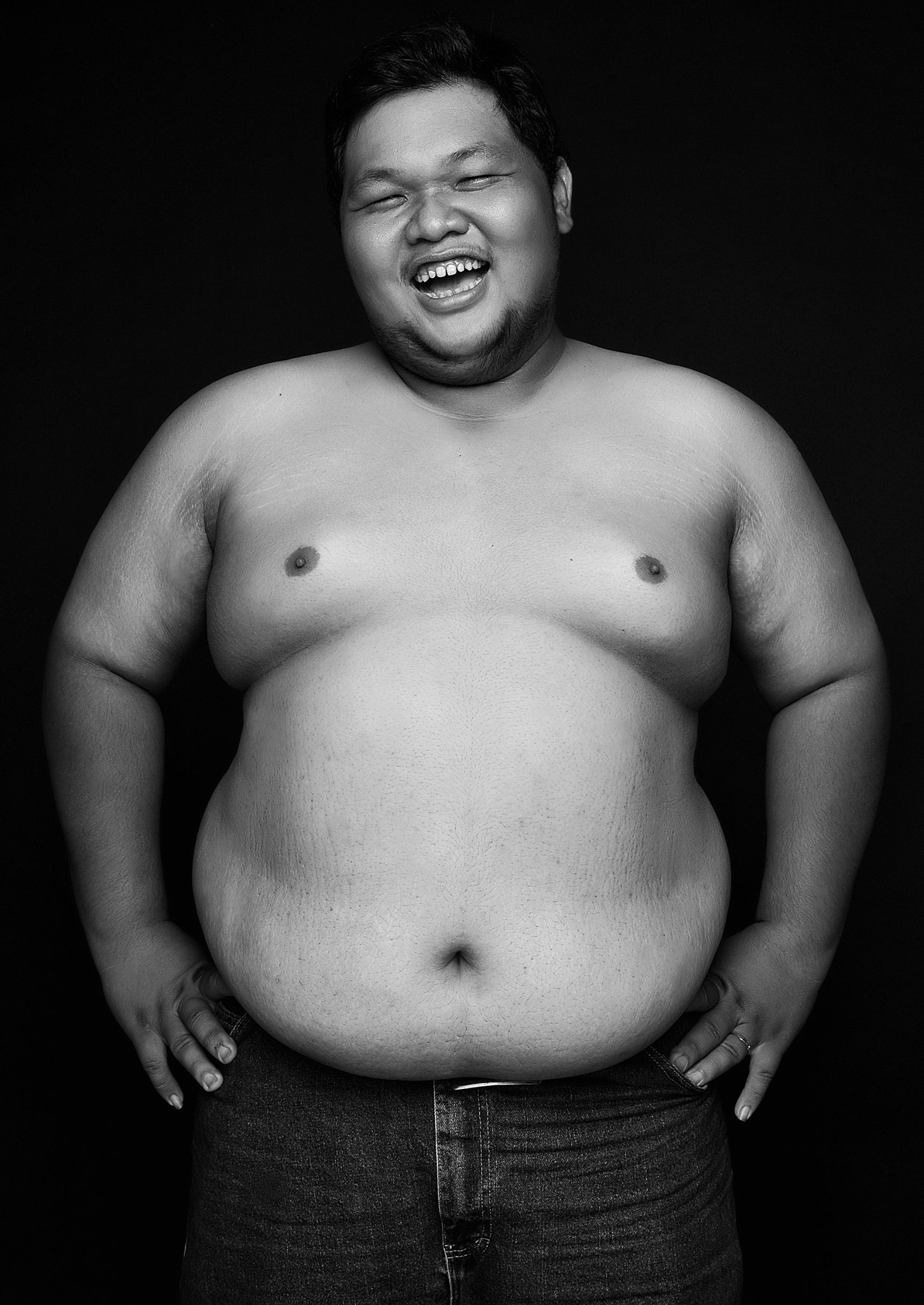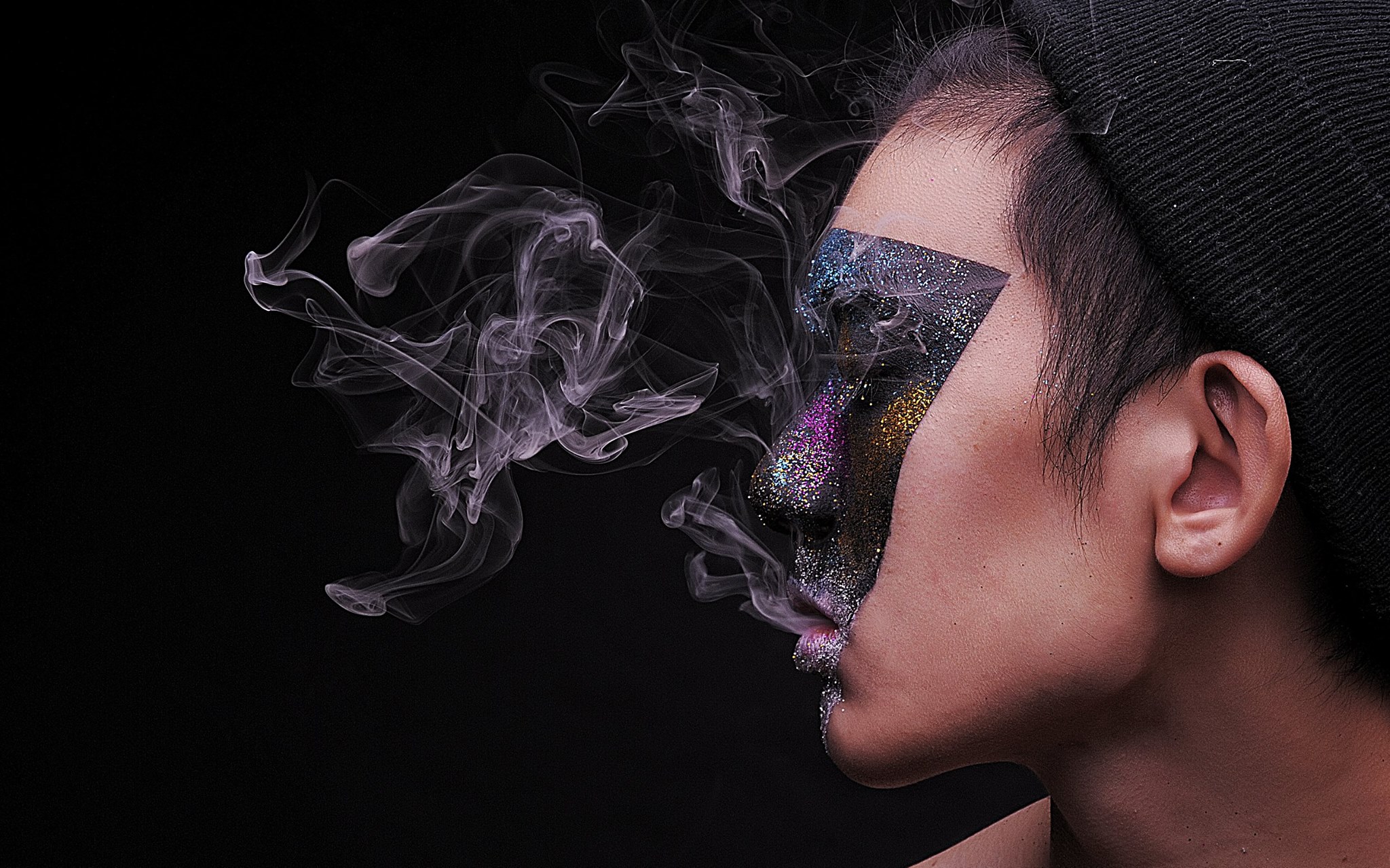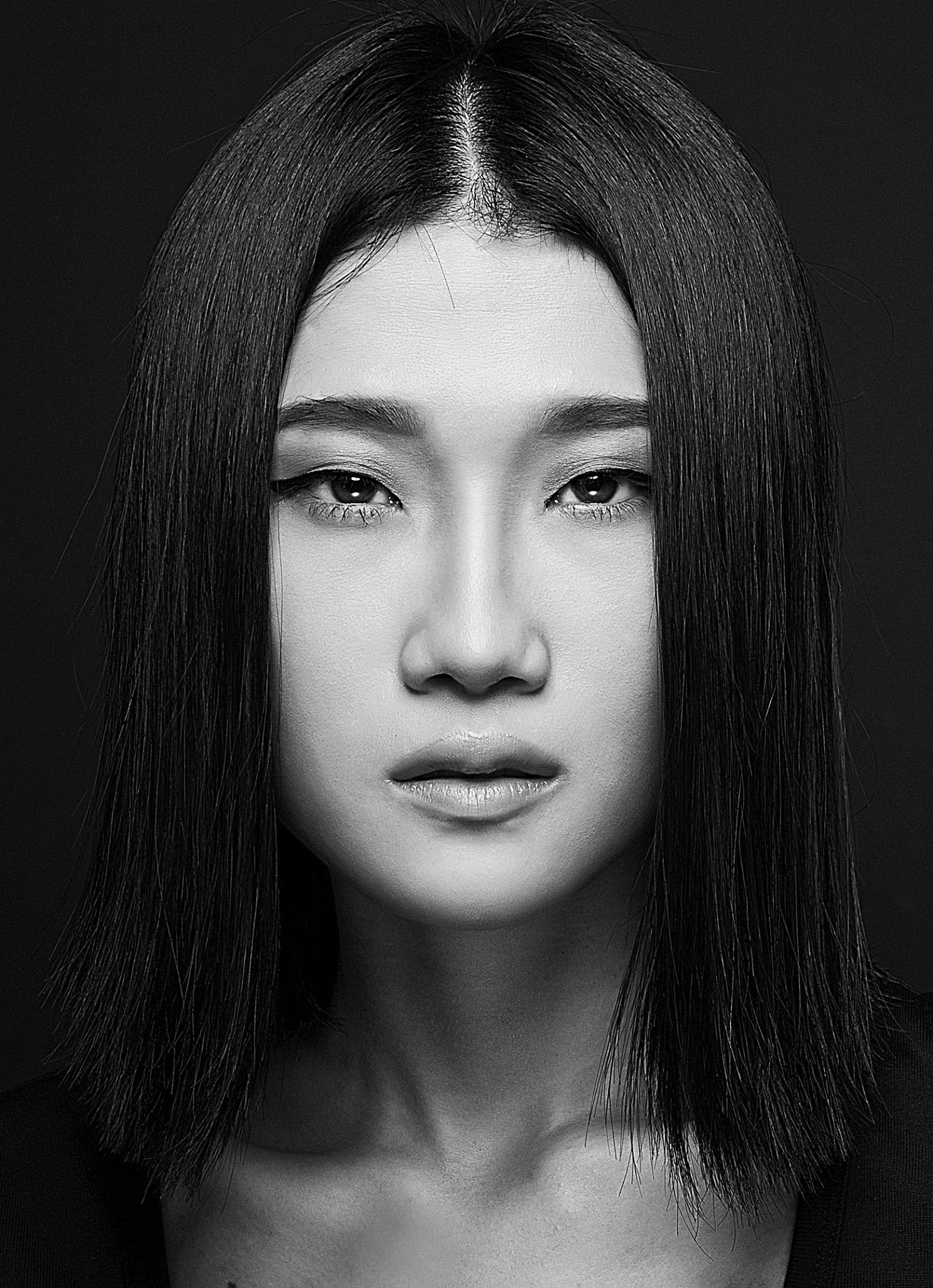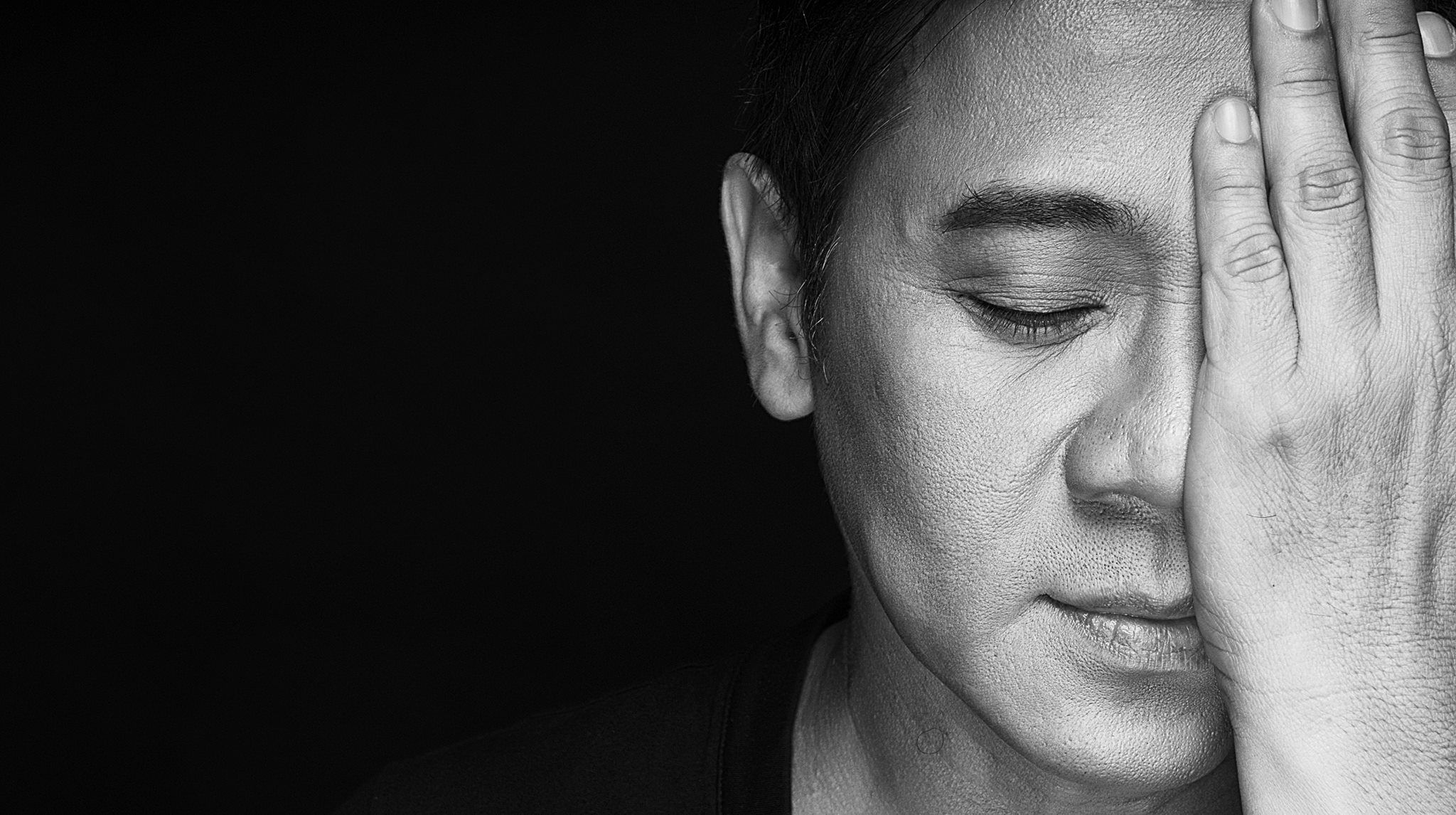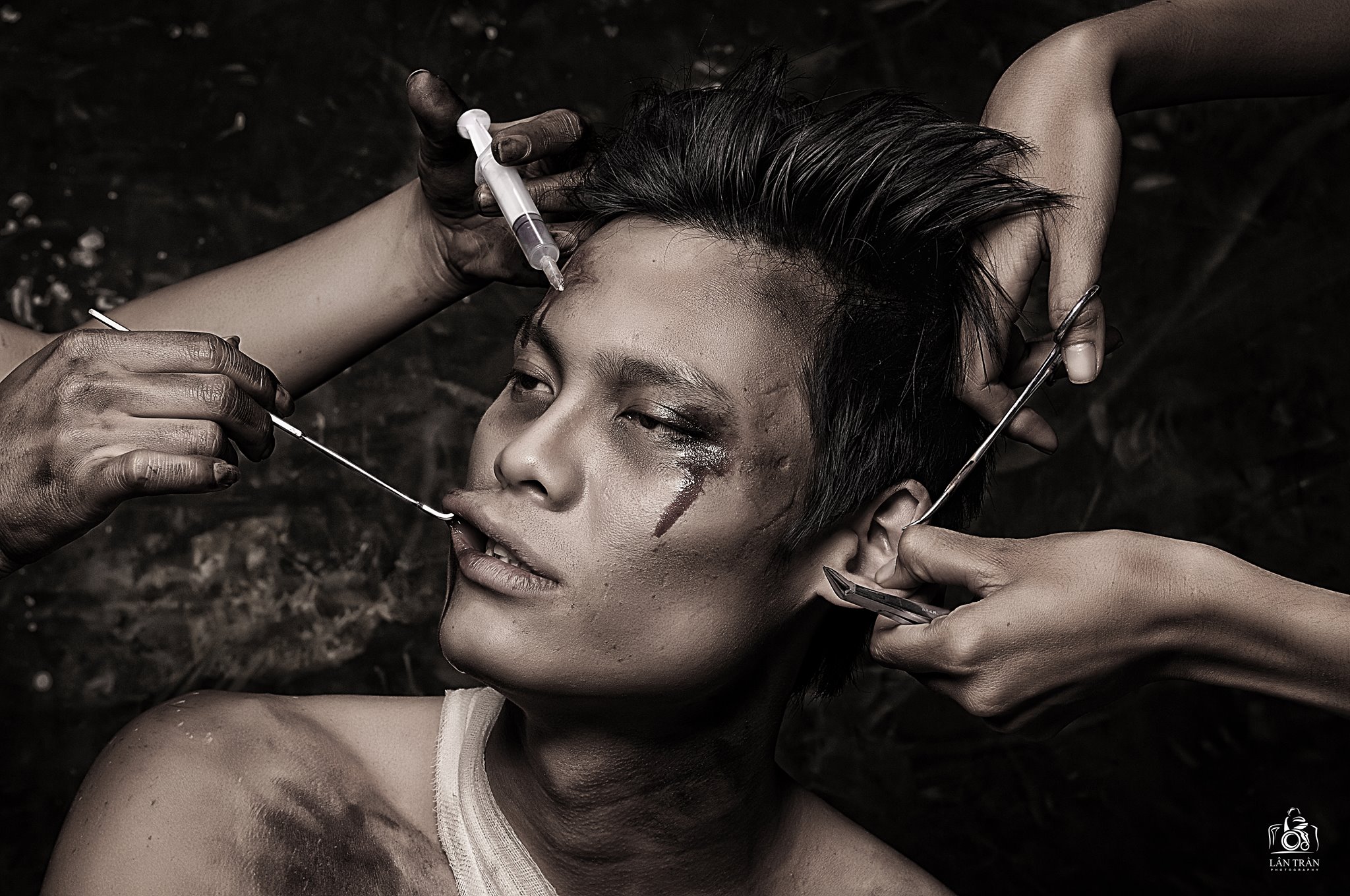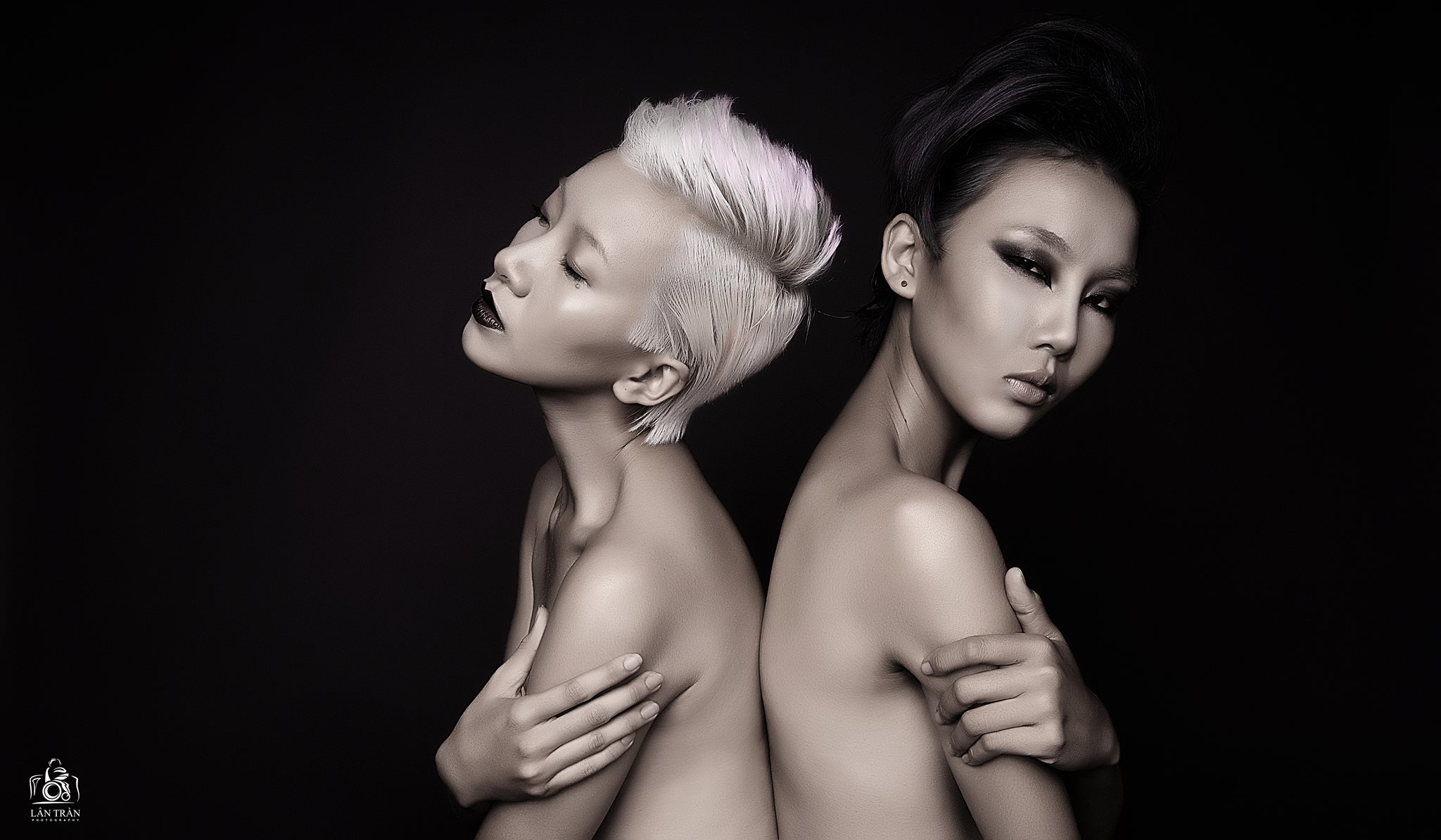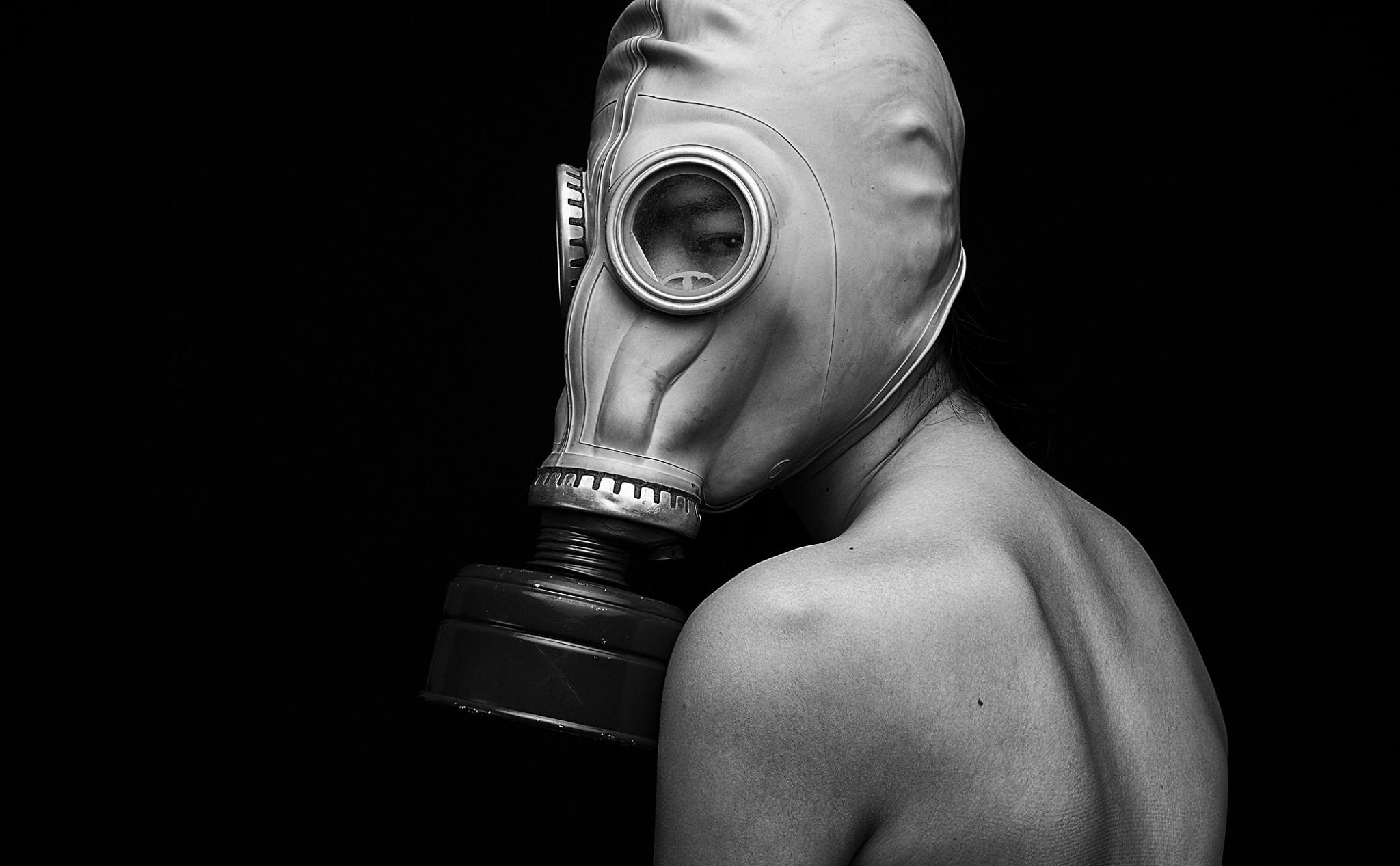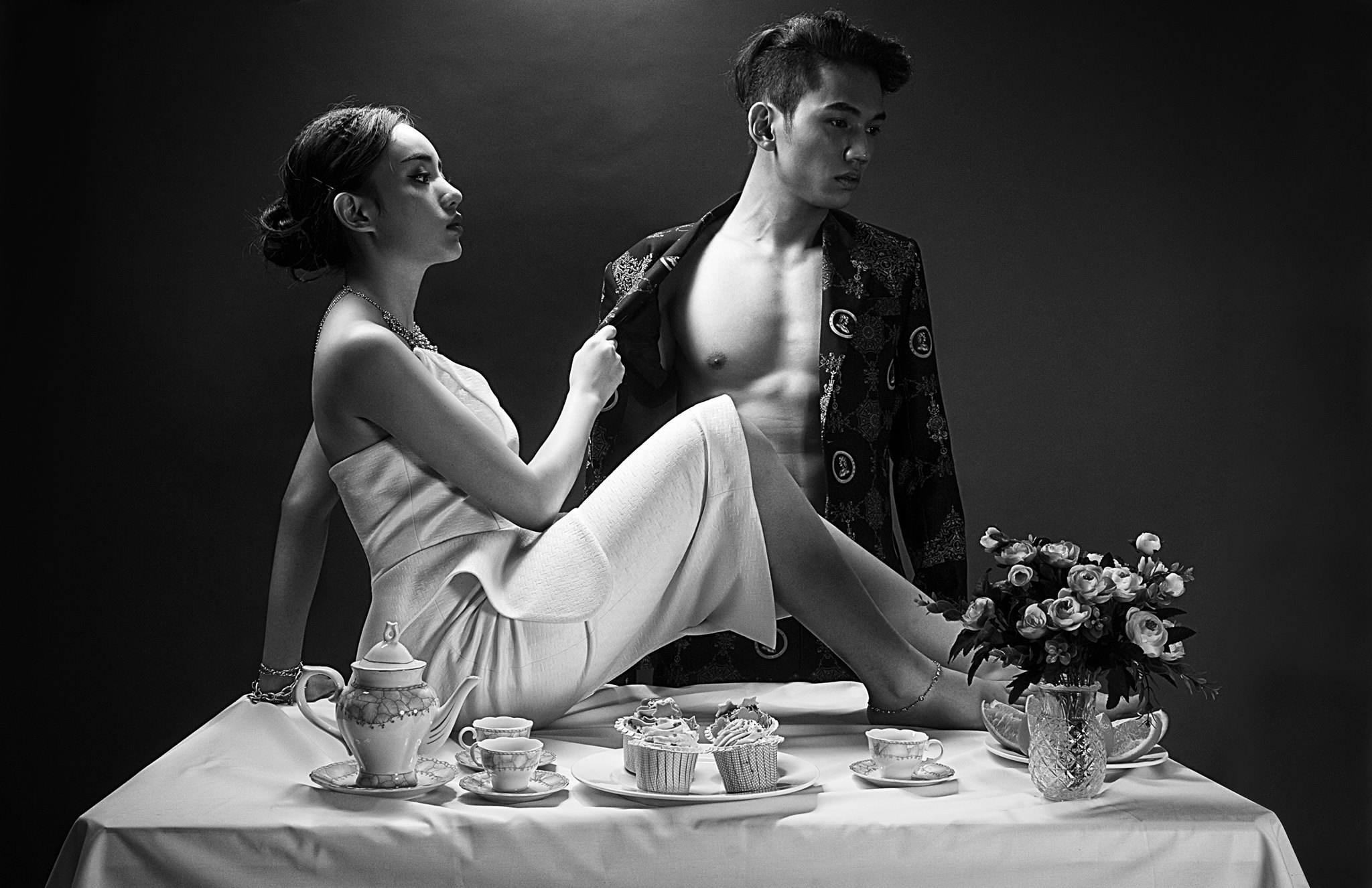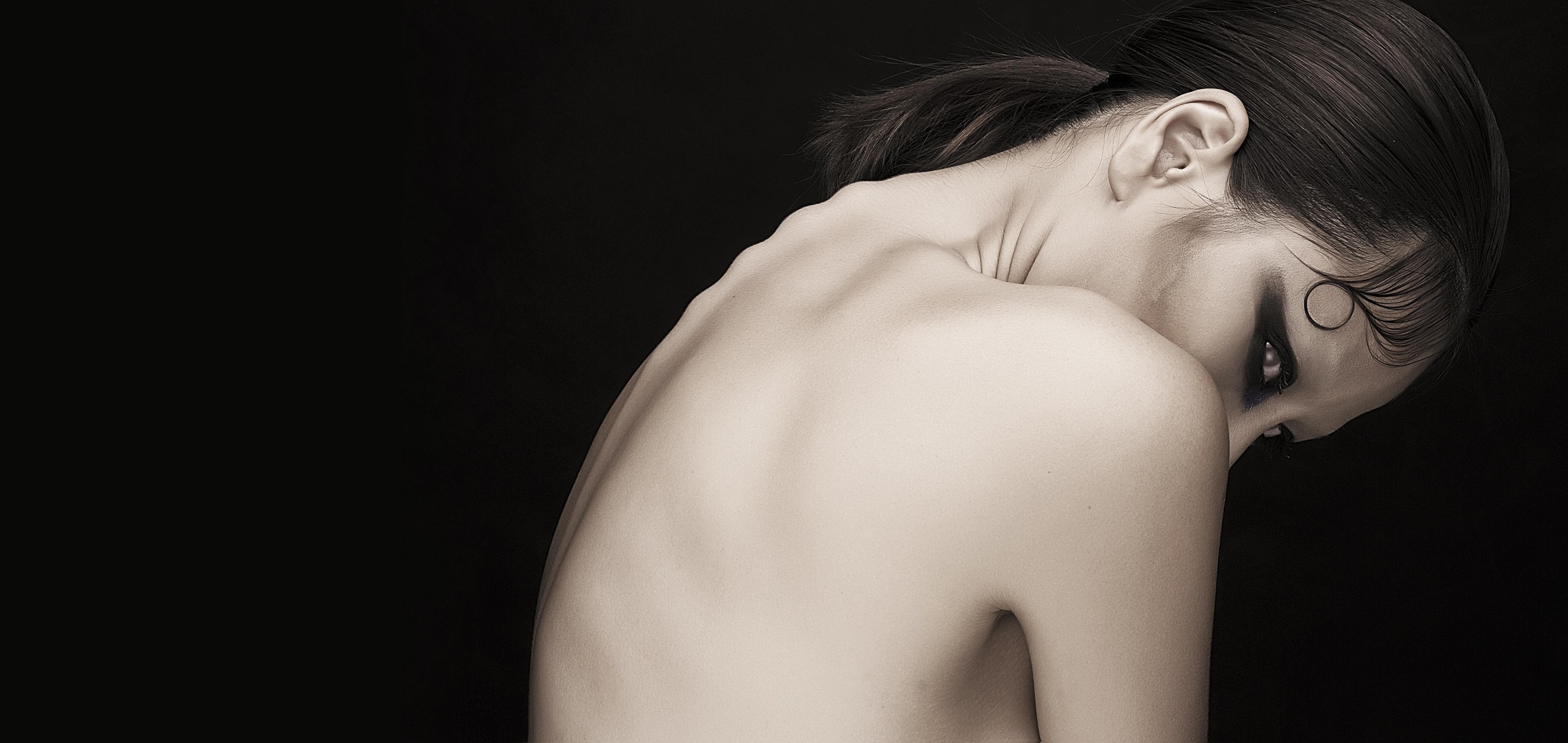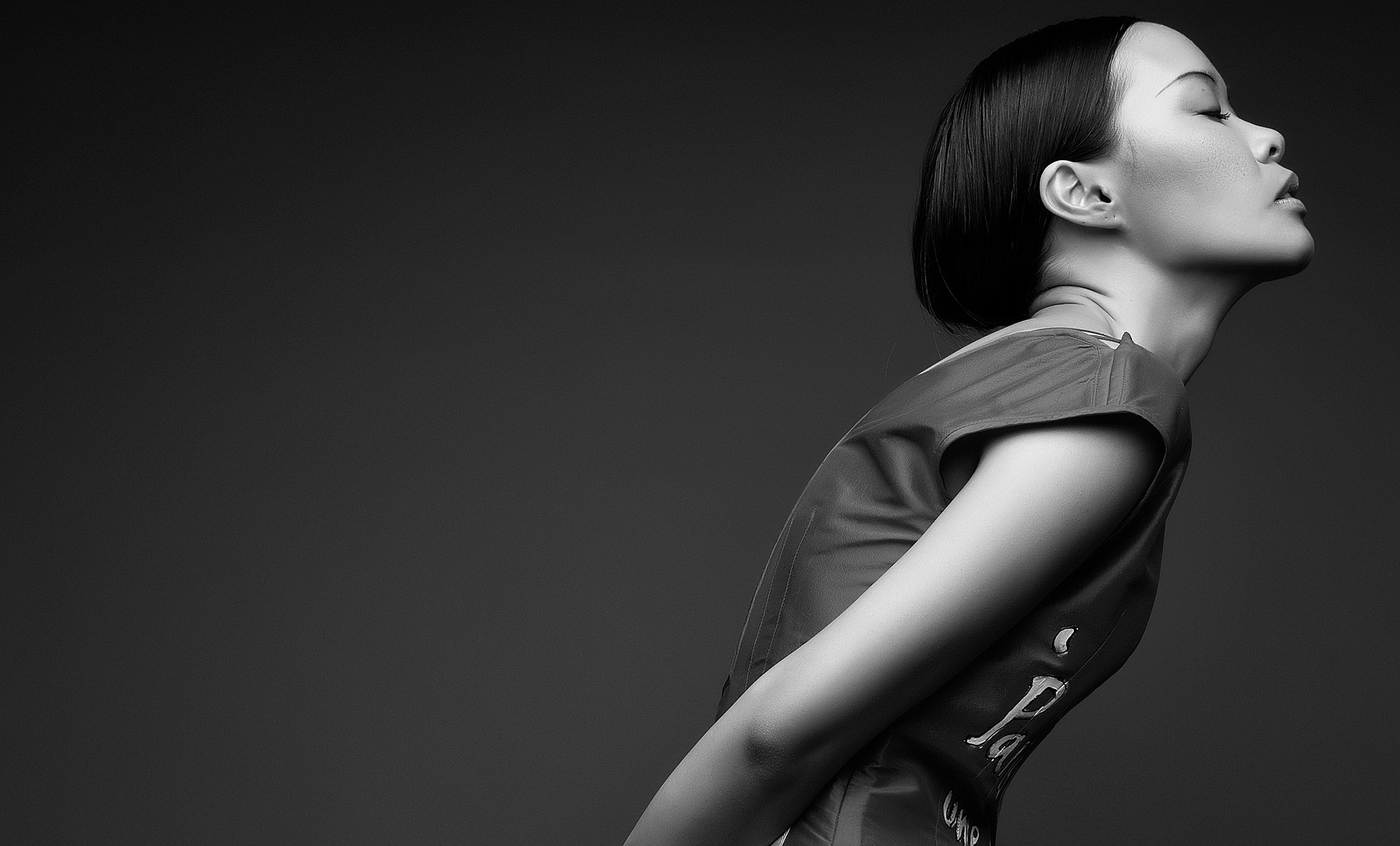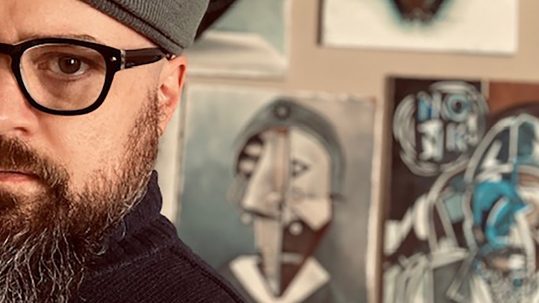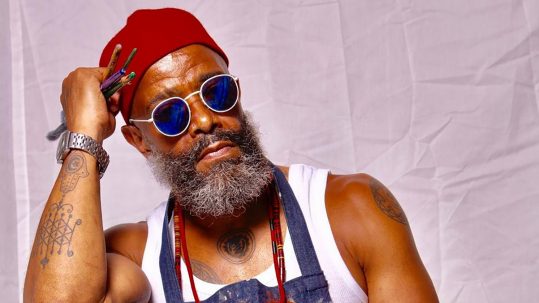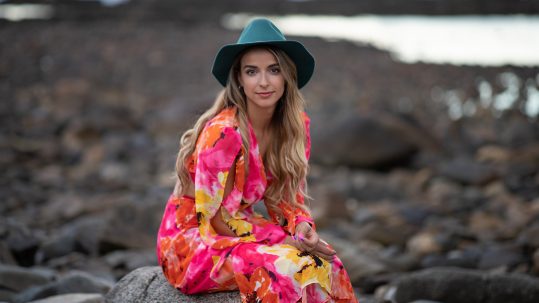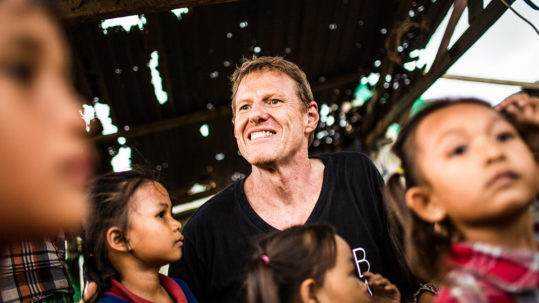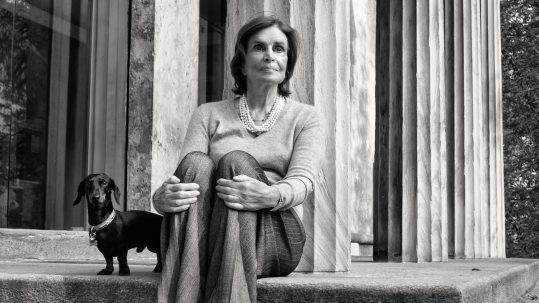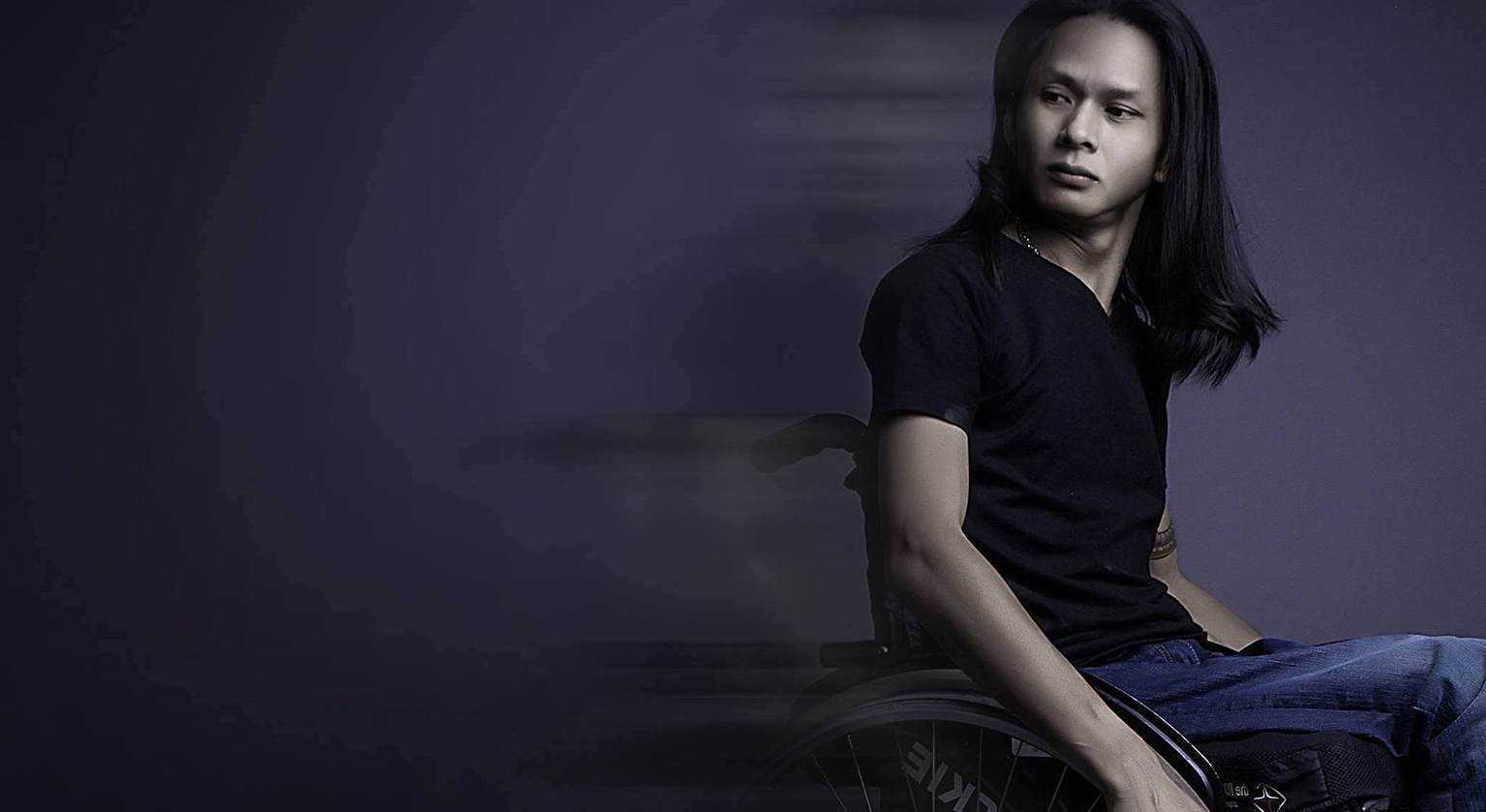
04 Oct Lan Tran
Photo: David Pham
LAN TRAN
Lan Tran, atypical and very talented Vietnamese fashion photographer, lost the use of his legs in a motorbike accident a few years ago. His photographs depict his journey back to life and the rebirth of a man determined to stand right under the sun. Lan Tran has become a voice for disabled people, and their best hope to be once again accepted as part of society like anybody else.
By Victoria Adelaide | OCT 23. 2017
Victoria Adelaide: Why do you take pictures?
Lan Tran: In April 2008, I had a very serious motorbike accident that left me in a wheel chair, and to keep myself busy my doctor who was also my friend, suggested that I could try to learn how to use photoshop. I actually liked it, so one thing leading to another, he suggested that maybe I could try to take pictures myself. It all really started as a hobby to keep myself busy, not as something I would think of as a job.
VA: So in a certain way, this accident has been what sparked your passion for photography?
LT: Yes, we can say it like that.
VA: So you started to take pictures and then what happened?
LT: So yes, for a few months I took pictures, and then I went on holidays in Vietnam. By chance, I met a very
well-known producer from the fashion world, and he offered me to do a series of pictures of one of his models, and this is how it all started.
VA: So you didn’t go to any photography school, you are a self-taught photographer?
LT: I’ve learned it all by myself and with the internet.
VA: You do a lot of fashion photography. Who is your favourite designer?
LT: I love to work with Chula, Hulos and with one or two others who all have a very unconventional way of thinking their art. Because my main focus is mostly on what is not conventional. Unfortunately, my style is not well accepted here in Vietnam, because people like to see only what pleases their eyes, what is beautiful, and me, I’m going in the opposite direction. I like to show the darker side of life as well, the reality of humanity and even of fashion, which is not always that glamorous, that’s why I’m not so well accepted here. I went through a very challenging time in my life when I had my accident, and I want to show people this side of my life that they didn’t automatically see. For many people, my life is still beautiful and great, but I went through very hard times, so I wanted people to picture that so they would realize what I went through.
VA: Do you want to export your art to a broader audience than Vietnam?
LT: I don’t think about it for now as I’m a bit afraid of falling into commercial stereotypes. Once you are very well-known and very popular, there are always influences around you who push you to do this or that, and the risk is getting influenced by what people want, following what people want and losing yourself and your authenticity. Right now, I’m doing what I want and I’m not getting influenced by anybody.
VA: When you work on a specific theme like all the ‘dark themes’ for example do you do that as a series of pictures, 10, 15 ? Do you work that way, what is your process?
LT: For now, no, because there are some elements missing, which is stopping me from doing that. So for now, when I have an idea or when an occasion presents itself, I just take the opportunity and I shoot. I have two or three projects in mind or already on paper, but because of the circumstances, I cannot do them yet; because of the models, censorship, a lot of things, we don’t have total freedom here. We have to be careful and to think about the models also; some of them would like to do it, but they are afraid for their career, so even if they want to do it, they won’t agree to do it.
Photos: Lan Tran
VA: There are many very talented photographers in Vietnam who, like you, have also started to think outside the box. Do you think photography can also evolve in this direction in the next few years?
LT: As long as there is censorship, no. People need to think about their life and therefore follow what people want and ask for. Luckily, photography is not my only source of income, so I can do what I want. Even if people don’t like me or if I don’t have clients, it doesn’t affect my life. Photography is a passion for me; I don’t think of it as a job. In spite of their talent, most photographers cannot express themselves freely and the way they want.
VA: Amongst all your gorgeous pictures, what’s your favourite?
LT: A series of photos for a theatre actor, Thanh Loc. One day he called me, I didn’t realise who he was at first ‘cause I was in bed, then we worked together. The photoshoot was easy and quick.
VA: Are there some photographers who inspire you?
LT: Not at all. I never research other photographers’ work because I’m always afraid of being influenced by what they do. A human being is a human being; when we see something we like, we may think, ‘well I could do something like this!’, and I’m afraid of that. I’m afraid of being influenced and then of producing something that looks like someone else’s work. And I don’t want that, I want to do something unique, original.
VA: So your work at the core is truly triggered by this desire of authenticity and to be original?
LT: Yes, we can say that.
VA: So you are a life-inspired artist?
LT: Yes, and by what’s going on right now around me in the world. Yes… with my style which is not conventional as I said, people have a hard time accepting it, showing the real side of things when people like to see only what is beautiful to their eyes. They love beautiful colours and this is also another problem that I have to face because I am colour blind.
VA: You are..??
LT: Yes, I am colour blind!
VA: I think you are Superman! (both laughing)
LT: I can’t do every client’s requests in term of colours. That’s why I work a lot with black and white. I work a lot on the light, contrast, in order to bring colours into black and white. I distinguish colours with the contrast not with the real colour.
VA: From the challenges you had/have to face in your personal journey and the fact that you cannot distinguish colours, isn’t it in a certain way what actually did help initiate your singularity as a photographer?
LT: Yes, we can say that, yes. On some of my colour pictures, people ask me ‘what is this colour?’ and I’m pleased about that, because it makes it unique in a way. I do not create regular colours as others do. It may look strange sometimes but this is my signature.
VA: Did it ever happen that a theme or a model didn’t inspire you and what happened then?
LT: Well, before the photoshoot we always speak about what we are going to do, and if I don’t like it, I don’t do it. So we don’t waste our time.
VA: What is your ultimate dream through your art?
LT: I’d like to see people open their eyes, and accept that there are different ways of conceiving and doing photography, and also not to have censorship anymore, so other photographers could express their talent.
VA: Regarding your accident, that has obviously transformed your life, what is your message to those who are in the same situation?
LT: I would say that I was born a second time, it’s two different lives. I want to spread the message for all the people who are in a wheel chair, especially here in Vietnam, because here the problem is that people with disabilities are afraid of the way society looks at them. Except those selling Lotto tickets who are in a wheel chair. There is nobody else who does what I’m doing, strolling in the city in a wheel chair. Nobody. I am the only one who dares to do that, to go everywhere, even clubbing. In the beginning, people used to look at me with big eyes, like ‘what is he doing here? it’s not your place here!’, but I didn’t care; I live my life and enjoy it as much as I can. But after a while, they got used to seeing me and now when they see me, it’s more like ‘hey buddy, my friend how are you?’ And this is the message I want to send out to other disabled people; they must get out of their houses, not pay any attention to the way people look at them. I haven’t managed to convinced them yet. I met with several disabled people, I took them out with me, in the city etc… but after a while, they still remain very reclusive and stay at home. I haven’t managed to convince them yet to live their life…
VA: What about psychological support?
LT: Here in Vietnam there is no proper psychological support. And the entourage of the person often sees that as a problem to have someone who is disabled.
VA: What do you think should be done to improve the life of disabled people in Vietnamese society?
LT: First of all, the people and the government must start to open their arms to disabled people like they do in Europe, and give them the possibility to support themselves financially as well. Because after an accident like mine, their life is finished here. They live thanks to their family, but if they don’t have a family that can support them financially, it’s very hard.
VA: How did what happened to you change your perspective?
LT: Before, my life was about work, sleeping and messing around. Now I see life differently. We have to do something for society, help people, because when you have survived something that hard, you always try to help others who are in a similar situation and who are less lucky than you are. Independently of talent, I think I’m lucky to be where I am now in my life; I’m a lucky guy. What is important for me is to help other disabled people like me to get out of their homes, and to be part of society like everyone else, this is what I want.
...What is important for me is to help other disabled people like me to get out of their homes, and to be part of society like everyone else, this is what I want``

